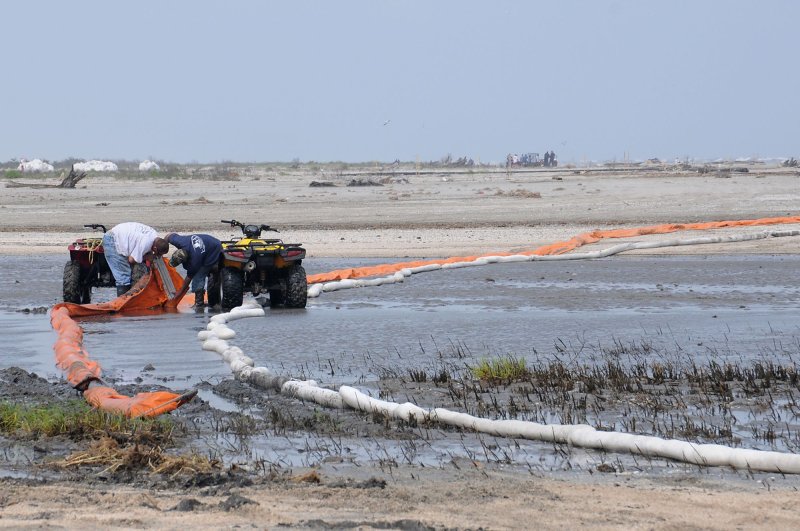1 of 2 | HS&E workers place oil containment boom on low areas of a beach in Fourchon, Louisiana May 14, 2010. The boom is place in the low areas to prevent oil from getting into the nearby marsh when water from the ocean flows into it when sea levels are at their highest levels. UPI/Patrick Kelley/US Coast Guard |
License Photo
WASHINGTON, May 22 (UPI) -- Environmental devastation from the gushing Gulf of Mexico oil spill will spread as far as Europe and the arctic, scientists said.
"This is not just a regional issue for the wildlife," Carl Safina, president of the Blue Ocean Institute, told members of the U.S. House Energy and Commerce Committee as the panel scrutinized the much-criticized response to the spill.
Safina said multiple forms of marine life across the Atlantic Ocean come to the Gulf of Mexico to breed.
Like other scientists who testified before the committee, Safina criticized BP's response to the spill.
"I think asking BP for answers is the wrong place to look," he said. "They seem to have cut corners on some critical junctures. We keep asking their permission to go down and measure the oil that's coming out."
Sylvia Earle of The National Geographic Society said BP's playing a leading role in containment efforts would amount to "relying on the foxes to look after the chicken coop."
She and other scientists also questioned the decision to try to break up the spill by injecting chemicals into crude oil flowing from the seabed floor.
"We don't know effects of dispersants applied a mile underwater. There's been no laboratory testing at all," Earle said.
Carys Mitchelmore, a University of Maryland researcher, said the chemicals could cause harm.
"I'm very concerned because I don't know," she said. "There are so many unknowns. We can't see these organisms dying and dropping to the sea bed."
Safina suggested BP used dispersants so cameras would be unable to show the extent of the oil slick.















